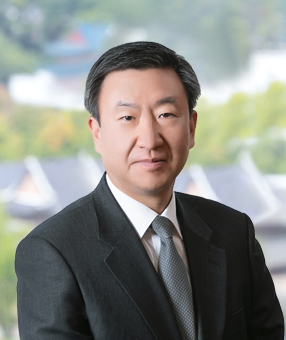On May 3, 2022, the Presidential Transition Committee (the "Committee") announced the "110 National Agenda of the Yoon Administration" that presented the new government's objectives and basic policy direction.
In particular, the Committee promised to "establish an innovative financial system amid rapid digital changes and transformations" in the financial services sector. The Committee also selected the following major national agenda: (i) digital financial innovation for the future financial services, (ii) establishment of infrastructure and regulatory system for digital assets, (iii) reform of capital markets and promotion of venture capital investments by enhancing investor confidence and (iv) protection of financial consumers and improvement of consumers′ rights and interests. In particular, the Committee announced its plan to enhance competitiveness of the financial industry by overhauling regulations on the permissible business scope of financial institutions and supporting the platformization and digitalization of the existing financial institutions. It would be necessary to pay close attention to further development and actual implementation of such plans after the appointment of the new chairman of the Financial Services Commission.
The key details and implications of the national agenda for financial services sector announced by the Committee are as follows:
1. Digital financial innovation for the future financial services
The new administration declared that it would strengthen the competitiveness of the financial industry by expanding the financial companies′ engagement in digital and platform industries. The Committee also stated its plan to improve the infrastructure for data collection and utilization in the financial services sector and regulations on financial security to facilitate the development of new types of financial services and also to support the launch of innovative financial services using new technologies such as blockchain.
In addition, the Committee declared that the new administration would improve the regulation on the scope of permissible business of financial companies in a manner suitable for the big-blur era, establish a system that can accommodate various business models, and strengthen the infrastructure to promote convergence between finance and non-finance businesses. In the same vein, the new administration plans to resolve the systemic obstacles that restrict the establishment of a comprehensive financial platform and improve the outsourcing regulation to facilitate the use of external IT resources such as AI.
2. Establishment of infrastructure and regulation for digital assets
With respect to the enactment of the proposed "Framework Act on Digital Assets", the Committee emphasized that it would (i) ensure regulatory flexibility so that new developments in global regulatory environments such as administrative orders and guidance issued by multinational organizations such as the Bank for International Settlements and the Financial Stability Board as well as the US government′s executive orders can adequately be reflected in domestic regulations in a timely manner and (ii) categorize virtual assets into "security" type and "non-security" type (such as utility token and payment token) and apply regulations accordingly.
Specifically, the Committee stated that while "security" type tokens may be issued and traded in accordance with the existing regulatory framework under the Financial Investment Services and Capital Markets Act (the "FSCMA"), the financial regulatory sandboxes will be first introduced to address issues that would eventually require amendments to the FSCMA. For "non-security" type tokens, the Committee announced that the government will establish a regulatory framework through legislative processes involving the so-called "Virtual Assets Act" currently pending before the National Assembly. Under the new regulatory framework, domestic initial coin offerings will be allowed for virtual assets with adequate investor protection. In addition, the Committee indicated that it will pursue taxation on returns on investment in virtual assets after codifying the investor protection measures in relevant laws and regulations.
While there was initially a plan to newly establish a department for virtual asset policies (tentatively named the Digital Industry Promotion Agency), the Committee clarified that the Financial Services Commission will primarily be responsible for overseeing the virtual asset regulations.
3. Reform of capital market and promotion of venture capital by bolstering investor confidence
In line with President Yoon′s campaign pledges, the Committee declared that it will implement measures to enhance tax support for individual investors, improve short sale regulatory regime and strengthen regulations on insider trading. The Committee also maintained President Yoon′s campaign pledge to review the delisting requirements for listed companies and impose stricter regulations on the listing of spun-off subsidiaries for the purpose of protecting the rights of minority shareholders of a parent company.
In addition, the Committee announced a plan to take the foreign exchange market to the next level by improving accessibility to the foreign exchange market and relaxing regulations on cross-border transactions and to increase overseas investment returns by expanding the role of sovereign wealth funds.
4. Protection of financial consumers and improvement of their rights and interests
In relation to President Yoon′s campaign pledge to implement periodic disclosure of the difference between the interest rates for deposits and loans charged by financial companies, the Committee announced that monthly disclosure system will be implemented. Further, the Committee declared that it will review and improve the current interest rate calculation system and business methods of banks.
In addition, with respect to regulations on big tech companies entering the financial services sector, the Committee stated that it would take necessary measures to reorganize the relevant regulatory environment, such as regulatory regimes intended to prevent mis-selling and strengthen the protection of customers′ information, in line with the global standards. The Committee also vowed to periodically review the simplified payment fees that big tech companies charge to small business owners.
With respect to the financial dispute resolution mechanisms administered by the Financial Supervisory Service (the "FSS"), the Committee′s emphasis on greater independence of the Dispute Mediation Committee within the FSS and implementation of the fast-track system to expedite the handling of financial complaints are consistent with President Yoon′s campaign pledges.







